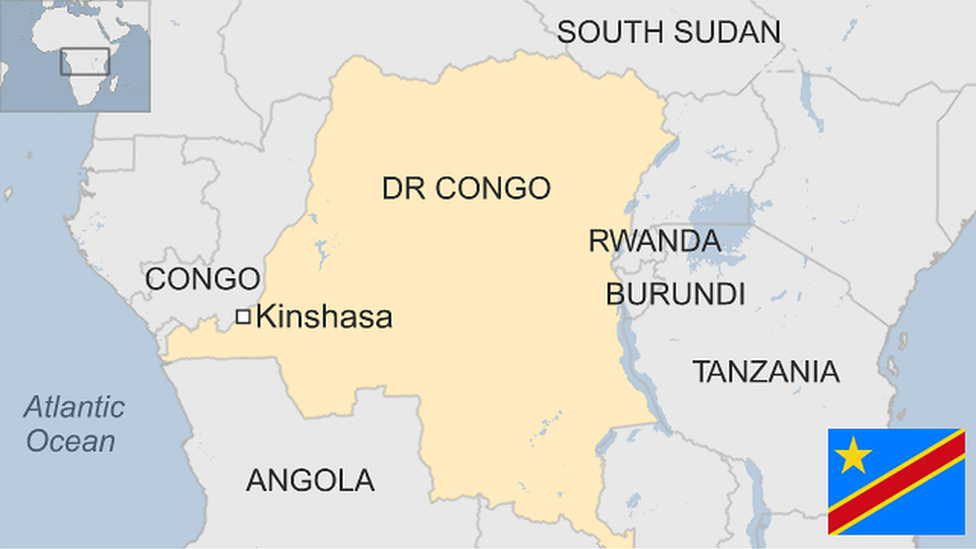DR Congo election: Sadc proposes unity government
- Published
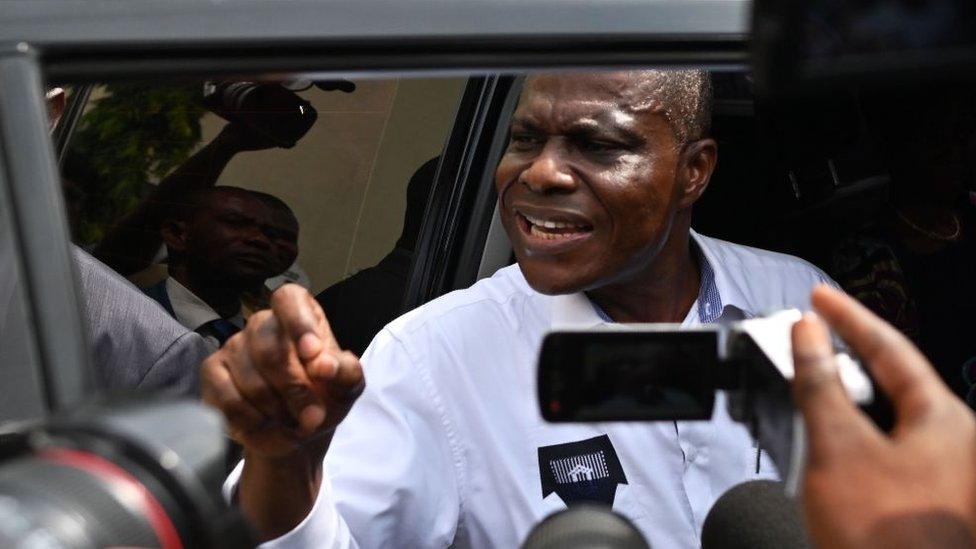
Martin Fayulu insists that he won the 30 December election
The southern African regional body Sadc has called for a unity government in the Democratic Republic of Congo, following the disputed presidential election.
All political leaders should agree a negotiated settlement, it said.
Opposition candidate Felix Tshisekedi was declared winner but another opponent of the current administration, Martin Fayulu, insists he won.
He alleges Mr Tshisekedi made a deal with outgoing President Joseph Kabila.
Mr Kabila has been in office for 18 years and the result, if confirmed, would create the first orderly transfer of power since independence from Belgium in 1960.
The declaration of Mr Tshisekedi as winner has also been disputed by the influential Catholic church which says it deployed 40,000 election monitors across the country.
On Saturday, Mr Fayulu filed an appeal in the Constitutional Court demanding a manual recount of votes cast in the 30 December election.
This call was supported by Sadc in its statement issued by Zambian President Edgar Lungu, who chairs Sadc's Politics, Defence and Security department.
He and other regional leaders felt the best way forward was a negotiated political settlement and a government of national unity, Mr Lungu said.
He cited the example of similar deals in Zimbabwe and Kenya.
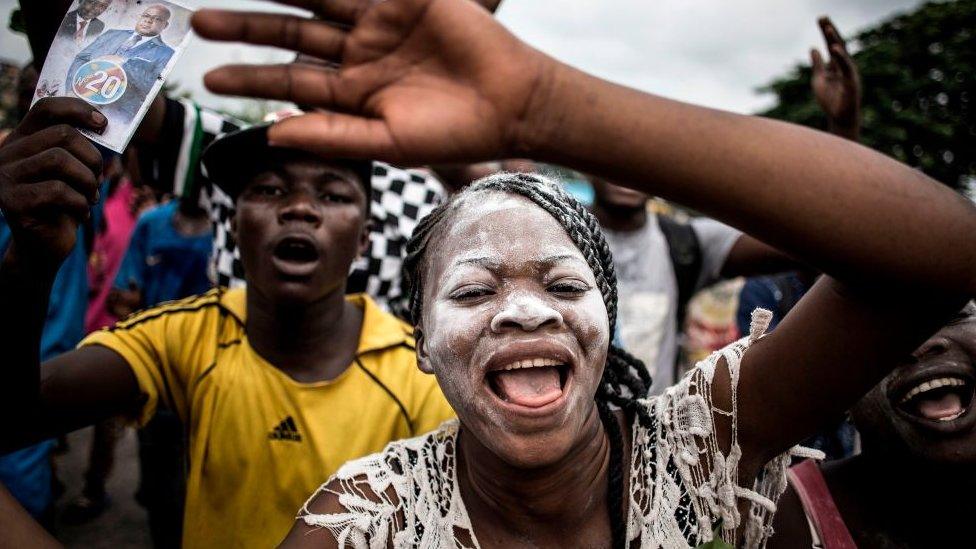
Supporters of Felix Tshisekedi have been celebrating his win
South Africa's Foreign Minister, Lindiwe Sisulu, also said a unity government could prove to be an acceptable compromise for a troubled country in desperate need of peace.
The legal process in the DR Congo should not be pre-empted, and outsiders should not attempt to force a settlement, she added.
Mr Fayulu tweeted to thank Sadc for backing his call for a vote recount but he did not comment on the proposed plan for a government of national unity:
Allow X content?
This article contains content provided by X. We ask for your permission before anything is loaded, as they may be using cookies and other technologies. You may want to read X’s cookie policy, external and privacy policy, external before accepting. To view this content choose ‘accept and continue’.
Several Western governments have expressed surprise and concern at the declared results.
Sadc's intervention will be welcomed by some as a wise proposal to avoid further bloodshed. But others will see it as another weak and dangerous compromise that undermines African democracy, and emboldens autocrats, the BBC's Andrew Harding in Johannesburg says.
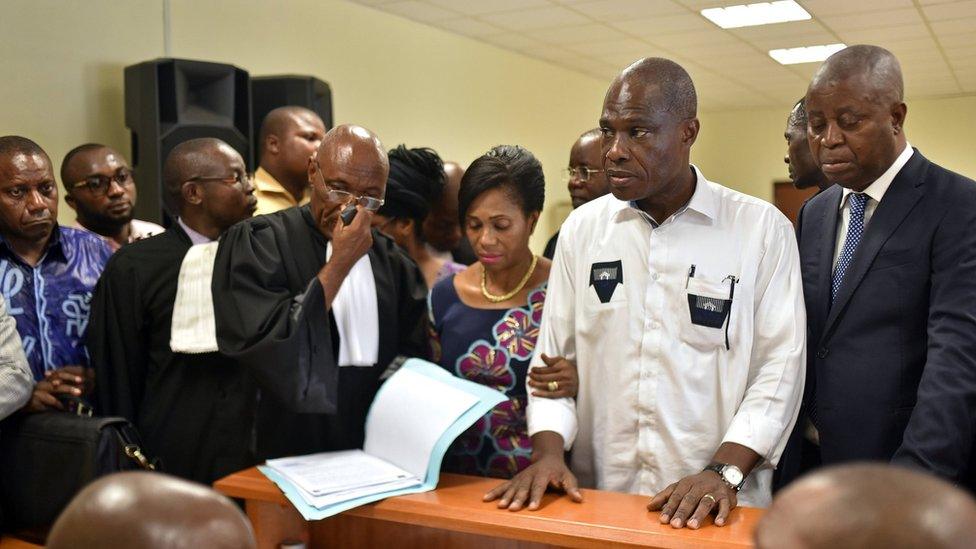
Mr Fayulu (second right) was given a receipt for his petition at the Supreme Court on Saturday
On Saturday, Mr Fayulu repeated that the result did not reflect "the truth of the ballot boxes"., external
He told BBC Africa editor Fergal Keane: "I will do whatever is possible for me to do to get the truth because the Congolese want change."
What was the result of the presidential election?
According to the National Electoral Commission (Ceni), Mr Tshisekedi received 38.5% of the vote.
The full results were:
Felix Tshisekedi - 7 million votes
Martin Fayulu - 6.4 million votes
Emmanuel Shadary - 4.4 million votes
Turnout was reported to be 48%.
The commission also said the pro-Kabila coalition had won a majority of parliamentary seats.
What could happen next?
Judges have seven days to deliberate.
Constitutional expert Jacques Ndjoli told the BBC there were three possible outcomes: the court could confirm Mr Tshisekedi's victory, order a recount, or cancel the results altogether and call fresh elections.
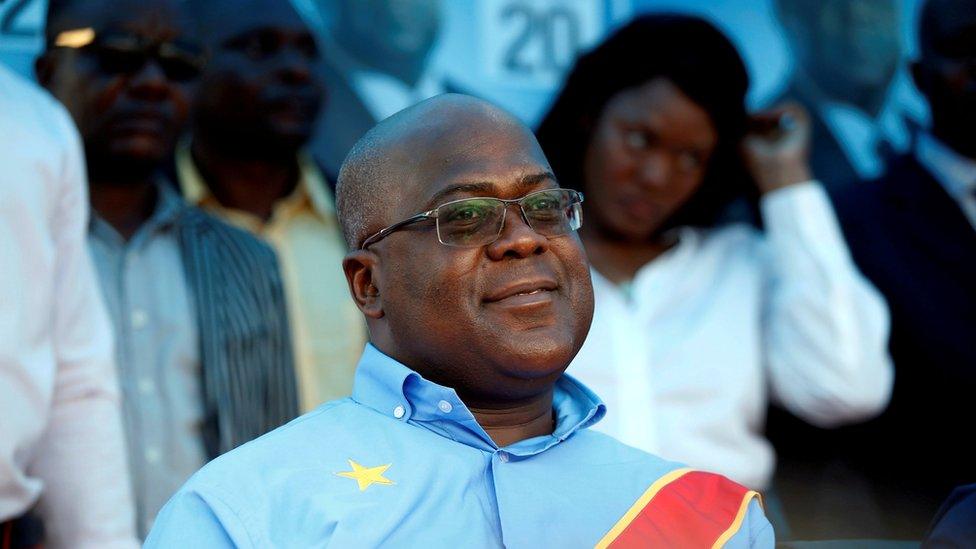
Felix Tshisekedi has claimed victory
The constitutional court has never overturned results before, and some think most of its judges are close to the ruling party.
If Mr Tshisekedi were confirmed as the winner, he would be expected to be inaugurated within 10 days.

Why DR Congo matters:

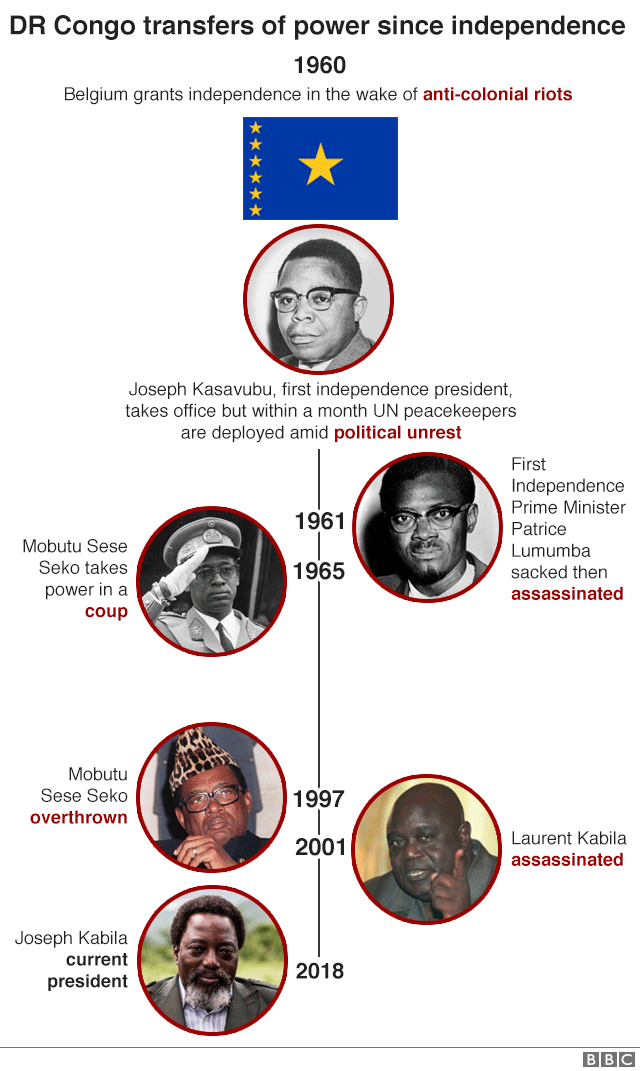

- Published29 December 2018
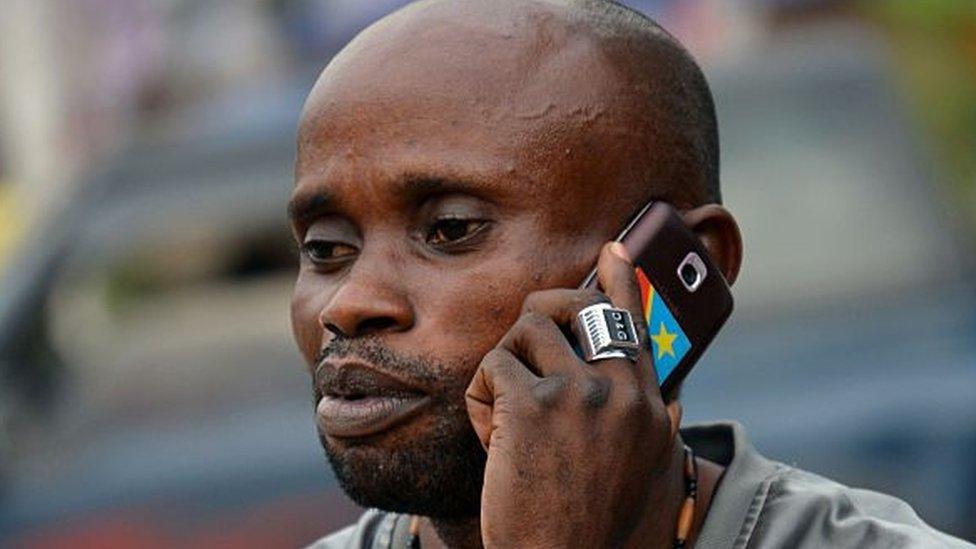
- Published28 December 2018
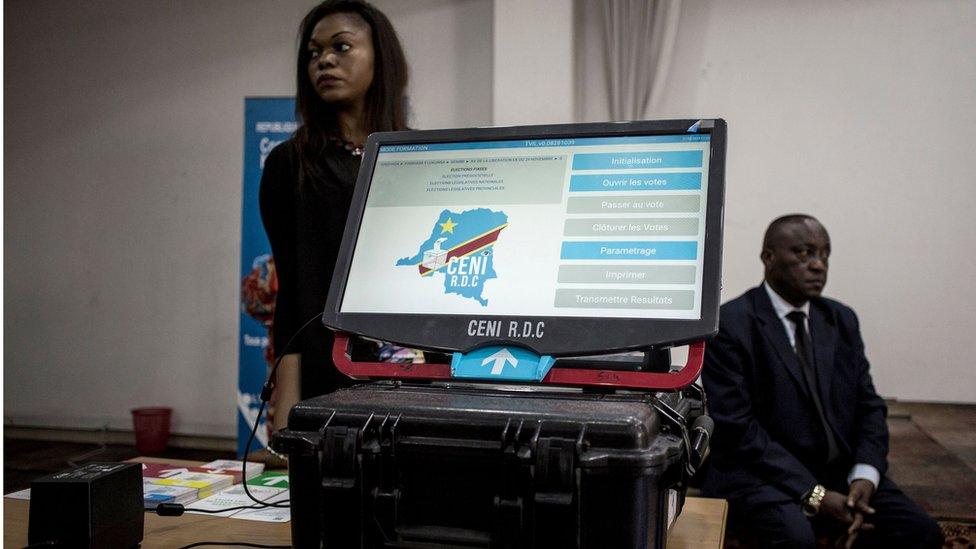
- Published31 January
